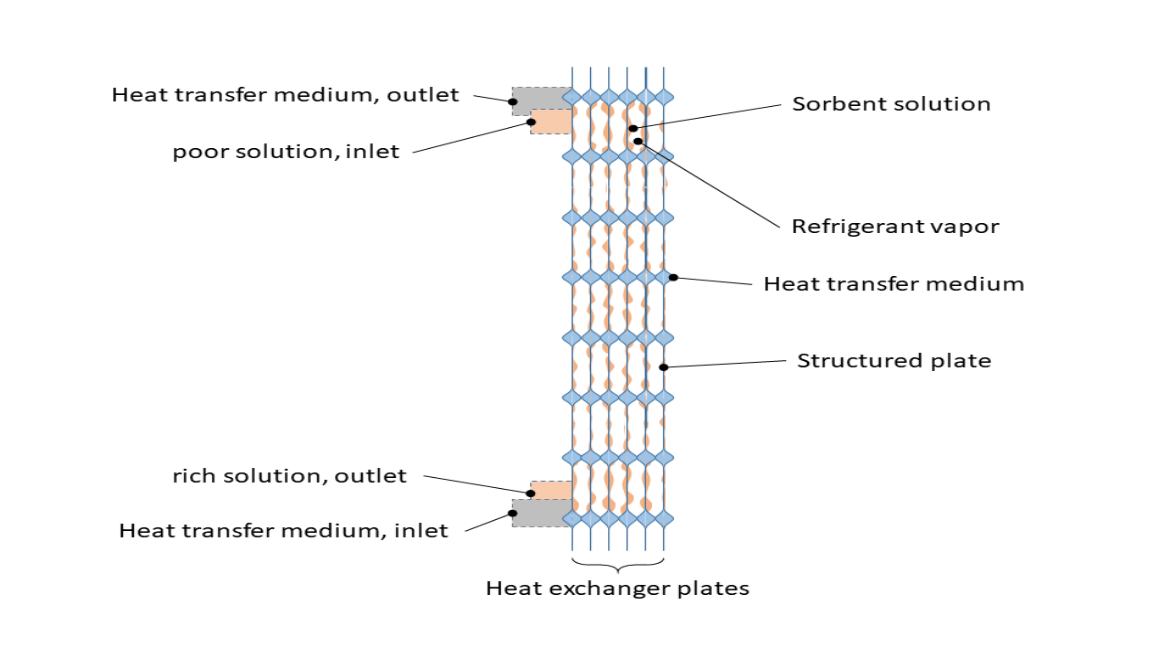Research Project SubSie-GALuWap
Gas-fired absorption heat pump with optimized heat exchanger geometry
Prof. Dr.-Ing. Christian Schweigler
Thomas Lex, M.Sc.
Energy and Building Services Engineering, Department 05
Absorption heat pumps are considered as efficient means to transfer low-temperature ambient heat to a higher level for heating of buildings and processes. The research project GaLuWap is part of the “SubSie” activity , a project-based cooperation of six research institutes and associated industrial partners. Common objective within the SubSie project initiative is the development of sorption heat pumps based on the climate-friendly refrigerant water for operation with heat source temperatures down to -10°C in order to significantly increase the annual operating time of such systems.
The objective of the GaluWap research project is a two-stage, gas-fired absorption heat pump with a heating capacity of approx. 150 kW. The system is suitable for supplying medium-sized consumer such as apartment buildings, residential quarters and hotels with space heating or domestic hot water. Low temperature heat collected from ambient at -10°C shall be upgraded by the two-stage heat pump up to a heating lemperature level of 60°C. The system's COP of 1.3 allows for primary energy savings up to 25% compared to a condensing boiler. In case of simultaneous supply of cooling and heating, e.g. in the food industry or in combined residential and commercial buildings, even higher savings can be accomplished.
In order to achieve reduced investment costs and increased compactness of these systems, the main components of the heat pump will be designed as plate heat exchangers instead of the conventional tube bundle configuration. For optimum design of the components of the sorption cylce with two-phase flow at low vapour pressure, numerical modeling of the fluid flow is performed. Subsequently, a single-effect test rig will be built to verify the predictions of the fluid dynamic modeling and to evaluate the performance of the plate heat exchangers.
The research project comprises the following tasks:
- Modelling of the vapor flow by computational fluid dynamics to predict the interaction of the refrigerant vapor and the liquid sorbent solution
- Verification of the predicted flow characteristics and evaluation of the performance of the optimized heat exchanger geometry in an experimental single-stage heat pump

Running duration:
01.12.2019 - 30.11.2022
Funded by:
Federal Ministry for Economic Affairs and Climate Action
Project executing organisation:
Project Management Jülich
Project Partner:
- Trane Roggenkamp Klima- und Kältetechnisches Büro GmbH
- ZAE Bayern - Bayerisches Zentrum für Angewandte Energieforschung, e.V.